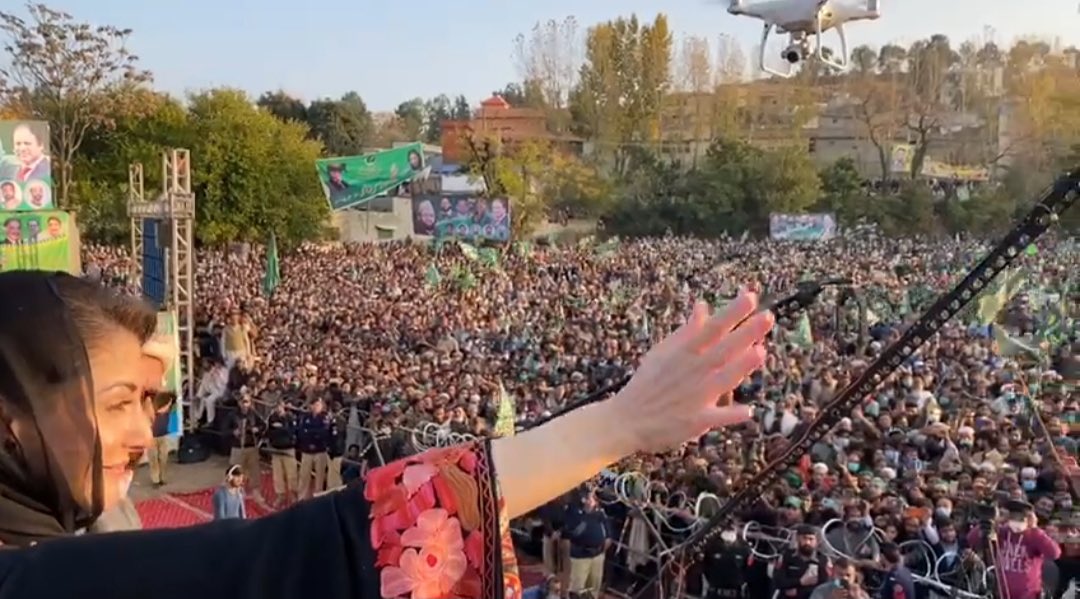Will the multi-party alliance under PDM be able to establish civilian supremacy? Would it once again establish the privileged position of only Punjab and Sindh?
New Delhi: The democratic churning in Pakistan under the Pakistan Democratic Movement (PDM) is not gaining much traction in India. Nevertheless, India’s western neighbour is experiencing a rare moment in its political history. In September 2020, the majority of Pakistan’s political spectrum, including 11 political parties came together to form a new multi-party alliance under the banner of Pakistan Democratic Movement. Apart from bringing together PPP and PML-N, the two mainstream rival parties, PDM has also provided the platform to regional parties and leaders from Balochistan and Khyber Pakhtunkhwa. The inclusion of regional parties in PDM who have experienced the worst form of repression by the Pakistan military for demanding regional autonomy and respect for human rights is a positive development for Pakistan’s democratic journey.
On 20 September, PDM adopted a 26-point resolution with key goals to oust the “selected Prime Minister” and end the Army’s role in politics through a mass movement. After successful rallies in Gujranwala, Karachi, Quetta, PDM recently announced a 12-point charter for Pakistan, listing goals such as ensuring the supremacy of the Constitution, independence of Parliament, an independent judiciary, distancing military and intelligence agencies from politics, reforms for free and fair elections, emergency economic package, and freedom of expression and media among others. PDM’s political inclusivity by bringing in voices from the periphery has brought a refreshing change in Pakistan’s political culture. It has challenged the credibility of the Imran Khan government as well as its military backers. Despite this initial success, it is PDM’s inclusivity that could become its Achilles’ heel in the long run. At present, there is no consensus within the PDM as to how to address the deep grievances of marginalised ethnic groups in the country.
In his recent speeches in PDM rallies, former PM Nawaz Sharif has directly accused Army Chief General Qamar Javed Bajwa of interfering in the democratic process and rigging the elections in Imran Khan’s favour. By directly targeting the military, Nawaz Sharif has touched a taboo subject in Pakistan’s politics. One of the core objectives of the PDM is to establish the supremacy of the Constitution and parliamentary process by curtailing the role of Army and intelligence agencies in the political process. However, Bilawal Bhutto-Zardari had already shown his discomfort at directly targeting Army generals at rallies since such moves could impact the integrity of national institutions.
While the PDM seeks to wrest some control over Pakistani politics and not complete civilian supremacy, Maryam Nawaz doesn’t seem to be content with that. Maryam Nawaz is trying to broaden her support base by catering to the Pashtun and Baloch representatives in PTM and BNP (Mengal), a move that might create fissures within the PDM. The military establishment brands these regional parties as anti-state and has signalled the PDM leaders to discard PTM and BNP (Mengal). Sources suggest that PPP and Nawaz Sharif’s brother Shehbaz Sharif of PML(N) are amenable to discard the regional leaders belonging to the marginalised ethnic groups to placate the military establishment. But they face serious opposition from Maryam Nawaz, who is adamant about her stance of maintaining inclusivity within PDM. Not only does she seek opposition unity, but she also has an axe to grind with the military establishment. Despite the mammoth turnout in PDM rallies, Pakistan’s military is still the arbiter and continues to have an influence on opposition leaders across the political spectrum.
As the reports suggest, PDM chief Maulana Fazlur Rehman has recently expelled Mohsin Dawar of Pashtun Tahafuz Movement (PTM). Mohsin Dawar also tweeted: “Questioning my presence in PDM at this stage is counterproductive to the forum’s struggle for democracy.” Sources within PDM have signalled that the reports are untrue and added that the real issue is his participation in an individual capacity, one that Dawar tweeted was known from the beginning. Farhatullah Babar of PPP tweeted that PPP had no role in Mohsin Dawar’s expulsion from PDM. Nevertheless, if reports of his removal are accurate, then such a move will not only divide PDM from within but will diminish the credibility of the movement as the harbinger for Pakistan’s democracy. In any case, there seems to be some rift already probably due to actions taken at the behest of the all-powerful military establishment.
It remains to be seen whether the multi-party alliance under the PDM banner will be able to establish civilian supremacy in Pakistan. Would it once again establish the privileged position of only Punjab and Sindh or would the Pashtun and Baloch minorities also get to taste the fruits of democracy? As Pakistan’s history suggests, the military establishment in Rawalpindi is unlikely to give up its firm grip on Pakistan’s politics that it now comfortably orchestrates from behind the curtains. It doesn’t prefer to administer directly through military dictatorships anymore as it creates a negative image of the country at the global level. Also, the political parties in Pakistan can be easily co-opted with incentives. The real test for the PDM will begin now. Will it be able to hold together despite its inherent contradictions and pressure from the Army? As Maryam Nawaz Sharif said, “It is only the beginning, and it would take a lot of struggle to achieve civilian supremacy.” But without building a consensus on critical issues and creating equal space for marginalised ethnic groups, the PDM may not be able to achieve its core objective of creating a genuinely democratic Pakistan.
Dr Yatharth Kachiar is a Research Associate at Vivekananda International Foundation (VIF) with a focus on the AF-Pak region. She also holds a doctorate from Jawaharlal Nehru University, New Delhi. She can be reached at @YKachiar on Twitter. Aveek Sen works on cybersecurity and the geopolitics of India’s neighbourhood focusing on PAI and Bangladesh. Find him on Twitter @aveeksen.

